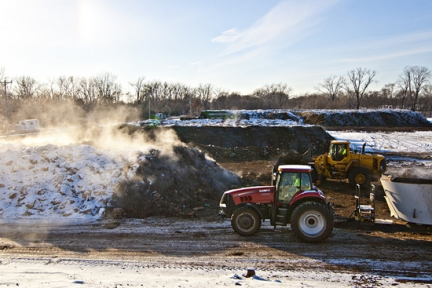
Waste occurs in our homes, offices and factories. While it is an expensive and sometimes unavoidable result of human activity, we can prevent or reduce waste.
The MPCA works with industry, government, and residents to reduce and manage waste. Our approach prioritizes waste reduction, reuse, recycling, and organics recycling above garbage burning or disposal in landfills, which preclude further use of the materials.
We seek to minimize the environmental impacts of materials over their life cycles through a focus on product design, raw material extraction, production, use and reuse, and disposal.
- Prevention and reuse – Prevention is the only way to slow or stop the upward trend of waste generation in Minnesota. Extending the life of existing materials and products is a key strategy for preventing waste and the greenhouse gas emissions caused by product manufacturing.
- Sustainable government purchasing – Purchasing decisions drives most of our environmental impacts. Changing how the State of Minnesota and local governments purchase supplies helps reduce the lifecycle environmental impacts of our consumption.
- Product stewardship – Manufacturers play a key role in preventing harm from their products. In Minnesota, we've worked with manufacturers so they help pay for the costs for collection and recycling of electronic waste, architectural paint, and rechargeable batteries.
- Consumption-based emissions – The MPCA can measure the environmental impact of products and services consumed in Minnesota by estimating their greenhouse gas emissions over their entire lifecycle. Most products cause greater environmental impact through their production and use than in the waste when at the time of disposal.
Education and outreach
MPCA staff educate the public, local governments, businesses, and other organizations on a variety of pollution prevention issues that drive economic development and innovative practices. These efforts include:
- Providing resources for businesses that want to reduce waste, increase reuse and recycling, and adopt more sustainable business practices.
- Engaging thousands of visitors each year at the Minnesota State Fair with the Eco Experience interactive exhibits about waste reduction, pollution prevention, and sustainable living.
- Offering the voluntary GreenStep Cities program to help cities achieve their sustainability and quality-of-life goals, including solid waste reduction and recycling.